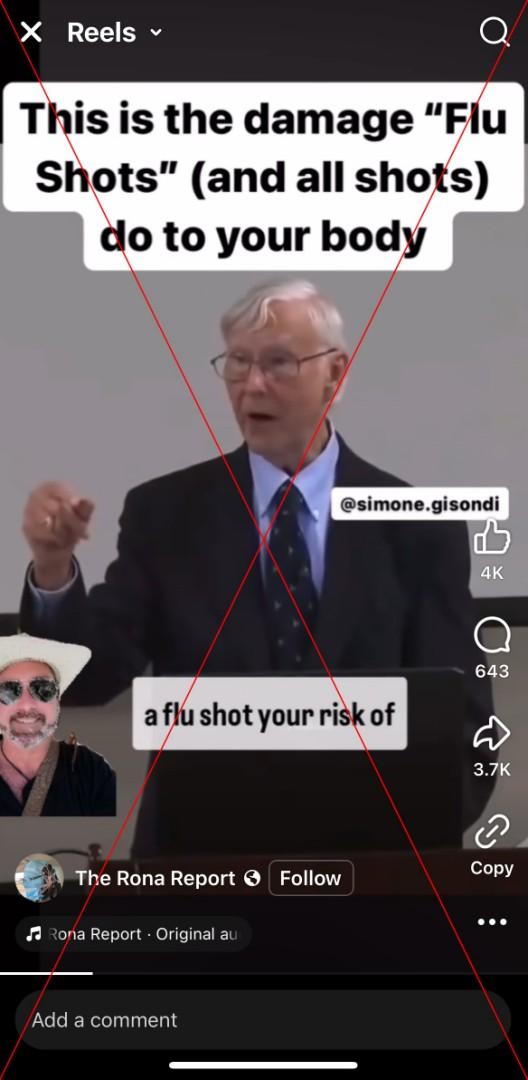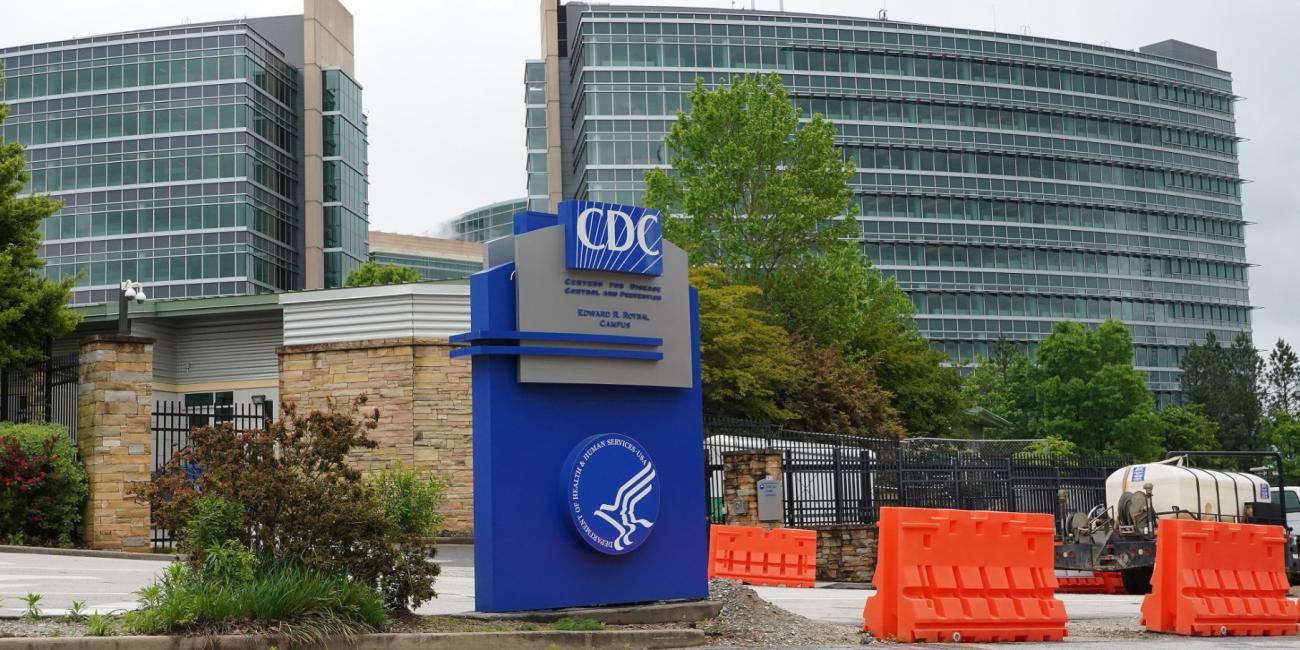
Flu shot does not increase risk of getting the virus
- This article is more than one year old.
- Published on October 10, 2024 at 17:40
- 2 min read
- By Alexia PARTOUCHE, AFP USA
"Flu shots don't work. In fact, there are some studies that show if you have a flu shot your risk of getting the flu actually increases," alternative health practitioner Raymond Francis says in a video posted September 21, 2024 to Facebook.
Francis, who died in 2020, continues: "And every flu shot will do permanent damage to your body, so you're permanently damaging your body, permanently damaging your immunity, permanently damaging your nervous system in exchange for little or no protection whatsoever from the flu, or even increasing your risk of getting the flu."

A keyword search on YouTube reveals the 41-second clip is from a nearly 90-minute-long video of Francis speaking at the Silicon Valley Health Institute on November 16, 2017. The footage has circulated elsewhere on Facebook, Instagram and Threads.
The claims are the latest in an annual cycle of misinformation targeting influenza vaccination. Experts strongly recommend people get vaccinated against the virus.
"I would say none of those claims are valid," said Emmanuel Walter, professor of pediatrics at the Duke University School of Medicine and a member of the Duke Human Vaccine Institute (archived here), on October 4, 2024.
"In terms of causing the flu, it doesn't cause the flu, and causing neurological problems -- it does not."
The US Centers for Disease Control and Prevention (CDC) does list Guillain-Barré syndrome (GBS), in which the immune system damages nerve cells, as a rare side effect of vaccination (archived here). However, studies have found the risk of GBS is far greater following infection than inoculation (archived here).
There is no evidence the vaccine causes long-term damage to the immune system. A 2017 study of health care workers found those who got the flu shot every year actually seemed to have a better immune response to the virus than those who were vaccinated only once (archived here).
Shot efficacy
While someone can still get infected with influenza after receiving the shot, that does not mean the vaccine is ineffective. The jab's efficacy depends on how well its strains match those circulating in the general population, according to the CDC.
Someone may get sick if exposed to strains different from those in the vaccine, but the CDC says on its website that the shot will still help reduce the severity of the illness (archived here).
During the 2023-2024 flu season, the CDC estimated more than 44,900 people died from flu complications (archived here). The 2024-2025 vaccine protects against three strains and is recommended for everyone six months and older.
"The fact is you can prevent illness, medical visits, hospitalizations and death by vaccinating," Walter said. "The vaccine works. Is it perfect? No. But it does work."
More of AFP's reporting on vaccine misinformation is available here.
Copyright © AFP 2017-2026. Any commercial use of this content requires a subscription. Click here to find out more.
Is there content that you would like AFP to fact-check? Get in touch.
Contact us




